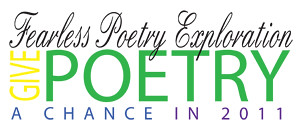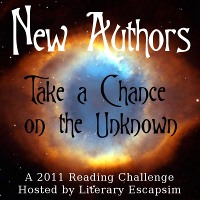Image may be NSFW.
Clik here to view. Michael Dickman‘s Flies, published in 2011 and a possible candidate for the Indie Lit Awards if it is nominated in September, won the Academy of American Poets James Laughlin Award, which is the only award for a second book of poetry. The collection is a dark look at family, but also takes a stark look at death and loss. However, there are lighter moments in the book, like in “Emily Dickinson to the Rescue” (page 21) that was highlighted in the Virtual Poetry Circle.
Michael Dickman‘s Flies, published in 2011 and a possible candidate for the Indie Lit Awards if it is nominated in September, won the Academy of American Poets James Laughlin Award, which is the only award for a second book of poetry. The collection is a dark look at family, but also takes a stark look at death and loss. However, there are lighter moments in the book, like in “Emily Dickinson to the Rescue” (page 21) that was highlighted in the Virtual Poetry Circle.
Beneath the whimsical wordplay and imagery of playgrounds and imaginary friends, there is a deep sense of unrest and yet acceptance of how things have turned out, though the narrator has many regrets. In “Imaginary Playground” (page 27), the narrator is playing alone with his imaginary friends, but as the scene fills in, it is clear that where there once were trees and places to play, there is concrete and change. The narrator is nostalgic for those moments, even if they were solitary moments with imaginary friends — wishing there was a way to return to the innocence of childhood and the creativity that period imbued. “The swing sets/aren’t really/there// . . . On the blacktop/we lie down in each other’s arms/and outline our bodies/in chalk// . . . There are no hiding places anymore//” (page 27-9)
The reading of “Flies” (page 50-4) is slightly different from the printed version in Flies.
Each poem strives to revisit a memory or a loved one and shine a light on their current state, whether that is rotting beneath the ground or in the sky as a star, but these juxtapositions serve to show readers that it is not crystal clear what happens after we die. The flies come and haunt those that remain behind with memories, regrets, and happiness, but those that die . . . vanish, never to be haunted by the past or present again. The recurring image of flies transforms from something that is friendly to something that is annoying and horrifying.
Translations (page 64-6)
My mother was led into the world
by her teeth
Pulled
like a bull
into the
heather
She only ever wanted to be a mother her whole life and nothing else
not even a human being!
One body turned into
another body
Pulled by the golden voices of children
A bull
out of hell
Called out
her teeth out in front of her
her children
pulling
*
First I walk my mother out
into the field
by a leash
by a lifetime
she walks me out
our coats
shimmering
I brush her hair
Wave the flies away from her eyes
They are my eyes
Who will ride my mother
when we aren't around
anymore?
Turned from one thing into another until you are a bull standing in
a field
The field
just beginning
to whistle us
*
I am led by the mouth
out into the
yellow
Light turning
to water in the early evening
the insects dying
in the cold and
returning
in the morning
I put on my horse-head
Led by a bit
A lead
My leader is tall and the hair on her forearms is gold
We lower your eyes
into the tall grass
and eat
Dickman is relentless in his long poems with their ever-changing images that repeat and twist. Readers are exposed to the ways in which memories are recalled bit-by-bit and slapped together and rearranged until a full, clear image is presented. At first these lines are confusing, and some readers may step back from the lines, but only by pressing onward will they see the full impact of the memories he taps. Flies by Michael Dickman is a captivating collection that may require greater attention, but the sharp imagery and twists-and-turns will keep readers riveted even as the poems and memories expand over several pages. On a side note, the book cover is very indicative of the memory recall the poet experiences — it is haphazard and vivid.
Image may be NSFW.
Clik here to view. About the Poet:
About the Poet:
Michael Dickman was born and raised in the working-class neighborhood of Lents in Portland, Oregon. His first book, The End of the West, was published by Copper Canyon Press in 2009. His poems have appeared in The New Yorker, American Poetry Review, The New Republic, and Field, among others. Dickman is the recipient of fellowships and residencies from the Fine Arts Work Center in Provincetown, the Lewis Center for the Arts at Princeton University, and the Lannan Foundation. He has worked for years as a cook and has been active recently in the Writers in the Schools program.
Image may be NSFW.
Clik here to view. This is my 20th book for the Fearless Poetry Exploration Reading Challenge.
This is my 20th book for the Fearless Poetry Exploration Reading Challenge.
Image may be NSFW.
Clik here to view. This is my 37th book for the 2011 New Authors Reading Challenge.
This is my 37th book for the 2011 New Authors Reading Challenge.